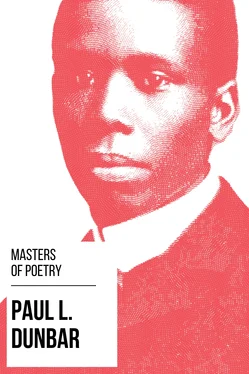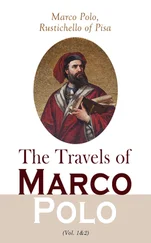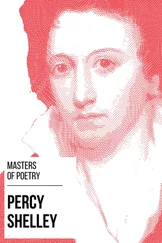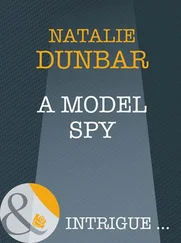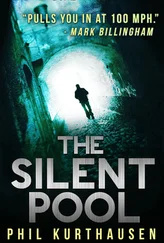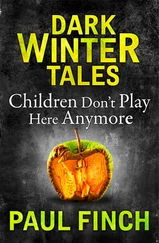Unless his novels are considered as forming a distinct class, Dunbar's work falls naturally into three divisions: the poems in classic English, those in dialect, and the stories in prose. It was his work in the Negro dialect that was his distinct contribution to American literature. That this was not his desire may be seen from the eight lines entitled, "The Poet," in which he longed for success in the singing of his "deeper notes" and spoke of his dialect as "a jingle in a broken tongue." Any criticism of Dunbar's classic English verse will have to reckon with the following poems: "Ere Sleep Comes Down to Soothe the Weary Eyes," "The Poet and His Song," "Life," "Promise and Fulfillment," "Ships That Pass in the Night," and "October." In the pure flow of lyrical verse the poet rarely surpassed his early lines:
Ere sleep comes down to soothe the weary eyes,
How questioneth the soul that other soul—
The inner sense which neither cheats nor lies,
But self exposes unto self, a scroll
Full writ with all life's acts unwise or wise,
In characters indelible and known;
So, trembling with the shock of sad surprise,
The soul doth view its awful self alone,
Ere sleep comes down to soothe the weary eyes.
As stated in the Preface, we are under obligations to Dodd, Mead & Co. for permission to use the quotations from Dunbar. These are covered by copyright by this firm, as follows: "Ere Sleep Comes Down to Soothe the Weary Eyes," "The Poet and his Song," and "Life," 1896; "Lullaby," 1899; and "Compensation," 1905.
"The Poet and his Song" is also distinguished for its simplicity and its lyric quality:
A song is but a little thing,
And yet what joy it is to sing!
In hours of toil it gives me zest,
And when at eve I long for rest;
When cows come home along the bars,
And in the fold I hear the bell,
As night, the Shepherd, herds his stars,
I sing my song, and all is well.
* * * * *
Sometimes the sun, unkindly hot,
My garden makes a desert spot;
Sometimes a blight upon the tree
Takes all the fruit away from me;
And then with throes of bitter pain
Rebellious passions rise and swell;
But life is more than fruit or grain,
And so I sing, and all is well.
The two stanzas entitled "Life" have probably been quoted more than any other lines written by the poet:
A crust of bread and a corner to sleep in,
A minute to smile and an hour to weep in,
A pint of joy to a peck of trouble,
And never a laugh but the moans come double;
And that is life.
A crust and a corner that love makes precious,
With a smile to warm and the tears to refresh us;
And joy seems sweeter when cares come after,
And a moan is the finest of foils for laughter;
And that is life.
"Promise and Fulfillment" was especially admired by Mrs. Minnie Maddern Fiske, who frequently recited it with never-failing applause. Of the poet's own reading of "Ships that Pass in the Night" on one occasion, Brand Whitlock wrote: "That last evening he recited—oh! what a voice he had—his 'Ships that Pass in the Night.' I can hear him now and see the expression on his fine face as he said, 'Passing! Passing!' It was prophetic."
Other pieces, no more distinguished in poetic quality, are of special biographical interest. "Robert Gould Shaw" was the expression of pessimism as to the Negro's future in America. "To Louise" was addressed to the young daughter of Dr. Tobey, who, on one occasion, when the poet was greatly depressed, in the simple way of a child cheered him by her gift of a rose. "The Monk's Walk" reflects the poet's thought of being a preacher. Finally, there is the swan song, "Compensation," contributed to Lippincott's, eight exquisite lines:
Because I had loved so deeply,
Because I had loved so long,
God in his great compassion
Gave me the gift of song.
Because I have loved so vainly,
And sung with such faltering breath,
The Master in infinite mercy
Offers the boon of Death.
The dialect poems suffer by quotation, being artistic primarily as wholes. Of these, by common consent, the masterpiece is, "When Malindy Sings," a poem inspired by the singing of the poet's mother. Other pieces in dialect that have proved unusually successful, especially as readings, are "The Rivals," "A Coquette Conquered," "The Ol' Tunes," "A Corn-Song," "When de Co'n Pone's Hot," "How Lucy Backslid," "The Party," "At Candle-Lightin' Time," "Angelina," "Whistling Sam," "Two Little Boots," and "The Old Front Gate." Almost all of these poems represent the true humorist's blending of humor and pathos, and all of them exemplify the delicate and sympathetic irony of which Dunbar was such a master. As representative of the dialect verse at its best, attention might be called to a little poem that was included in the illustrated volume, "Candle-Lightin' Time," but that, strangely enough, was omitted from both of the larger editions of the poems, very probably because the title, "Lullaby," was used more than once by the poet:
Kiver up yo' haid, my little lady,
Hyeah de win' a-blowin' out o' do's,
Don' you kick, ner projick wid de comfo't,
Less'n fros'll bite yo' little toes.
Shut yo' eyes, an' snuggle up to mammy;
Gi' me bofe yo' han's, I hol' 'em tight;
Don' you be afeard, an' 'mence to trimble
Des ez soon ez I blows out de light.
Angels is a-mindin' you, my baby,
Keepin' off de Bad Man in de night.
Whut de use o' bein' skeered o' nuffin'?
You don' fink de da'kness gwine to bite?
Whut de crackin' soun' you hyeah erroun' you?—
Lawsy, chile, you tickles me to def!—
Dat's de man what brings de fros', a-paintin'
Picters on de winder wid his bref.
Mammy ain' afeard, you hyeah huh laughin'?
Go 'way, Mistah Fros', you can't come in;
Baby ain' erceivin' folks dis evenin',
Reckon dat you'll have to call ag'in.
Curl yo' little toes up so, my 'possum—
Umph, but you's a cunnin' one fu' true!—
Go to sleep, de angels is a-watchin',
An' yo' mammy's mindin' of you, too.
The short stories of Dunbar would have been sufficient to make his reputation, even if he had not written his poems. One of the best technically is "Jimsella," from the "Folks from Dixie" volume. This story exhibits the pathos of the life of unskilled Negroes in the North, and the leading of a little child. In the sureness with which it moves to its conclusion it is a beautiful work of art. "A Family Feud" shows the influence of an old servant in a wealthy Kentucky family. In similar vein is "Aunt Tempe's Triumph." "The Walls of Jericho" is an exposure of the methods of a sensational preacher. Generally these stories attempt no keen satire, but only a faithful portrayal of conditions as they are, or, in most cases, as they were in ante-bellum days. Dunbar's novels are generally weaker than his short stories, though "The Sport of the Gods," because of its study of a definite phase of life, rises above the others. Nor are his occasional articles especially strong. He was eminently a lyric poet. By his graceful and beautiful verse it is that he has won a distinct place in the history of American literature.
By his genius Paul Laurence Dunbar attracted the attention of the great, the wise, and the good. His bookcase contained many autograph copies of the works of distinguished contemporaries. The similarity of his position in American literature to that of Burns in English has frequently been pointed out. In our own time he most readily invites comparison with James Whitcomb Riley. The writings of both men are distinguished by infinite tenderness and pathos. But above all worldly fame, above even the expression of a struggling people's heart, was the poet's own striving for the unattainable. There was something heroic about him withal, something that links him with Keats, or, in this latter day, with Rupert Brooke and Alan Seeger. He yearned for love, and the world rushed on; then he smiled at death and was universally loved.
Читать дальше
